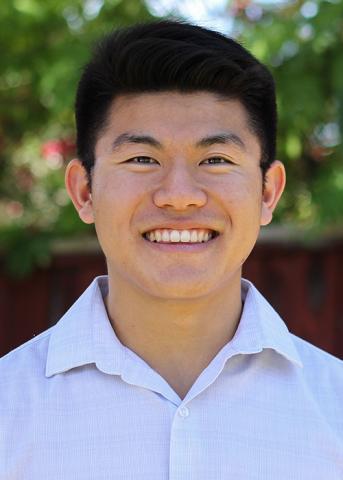Joseph Lee is now an Associate Clinical Systems Analyst at Stanford Health Care
Why did you choose health informatics and health information management?
Originally, I was leaning toward a technological major like computer science or general informatics. That changed after a summer internship at Stanford Health Care, where I worked in the IT (information technology) department. I realized I liked the health care field, but wanted to find a way to focus on the tech side. Luckily, UW offers the Health Informatics and Health Information Management (HIHIM) program, which seemed to blend my interests nicely.
What fascinated you most about HIHIM?
I got to work with health information management folks who seemed so passionate about their jobs. They were helping people from “behind the scenes.” It’s like, when you watch a play, you see the actors and actresses out on the stage, but they wouldn’t be able to do anything without the sound, lighting and tech crews that coordinate their movements and processes. Health care practitioners wouldn't be able to do their work without the health information managers.
Also, the variety of jobs intrigues me. Within HIHIM, you can do scanning and coding, be an analyst or work in data integrity. I like the idea of working to ensure health care data is up to quality standards and that there are no gaps in medical records.
How did you find your way to the UW?
I have an older sister who was interested in nursing. I came with her during her college tours to visit the UW and other universities in the Pacific Northwest. I just knew this was the place I wanted to go for my undergraduate education.
What was it about the UW that stood out?
The environment. The campus was really beautiful. Specifically, the quad with the cherry blossom trees. Also, Seattle reminds me of where I grew up near San Francisco and Berkeley. It felt a little bit like home.
What are your passions in health care and public health?
Simply knowing that I’m helping people. I like the idea of having a job that gives back to the community.
What have you enjoyed about your classes so far?
I get to take classes in the Active Learning Classroom in South Campus Center. It’s a really cool, interactive room, and it provides a great collaborative environment for group work.
In the “Professional Pathways” class, we went on site visits to explore various job roles and types of employers. We also worked in small groups to figure out our strengths and weaknesses, and to help each other with resumes and cover letters.
In Clarence Spigner’s “U.S. Health Care System” course, students were assigned a few questions to research, then we presented it to the class. Essentially, the students became the experts. I presented on how health informatics could help during natural disasters.
What are some of your professional goals?
Short term, I’d like to get more experience in health care through a summer internship. Once I graduate, I want to work for a bit before I go back for my master's degree. I hope that after that, I can pursue a job as a data analytics manager.
Do you do any other work or volunteering?
I stayed in Seattle last summer to finish the requirements for my math minor. While here, I volunteered with a nonprofit called Redeeming Soles, which provided shoes to underprivileged people and people experiencing homelessness in the Seattle area.
What advice would you give to prospective students?
Explore new things. I definitely didn’t know that I was going to take to health informatics, but an internship changed my whole perspective.
What do you like to do for fun?
I do intramural sports, which helps me meet people. I’ve played soccer, flag football, softball and ultimate frisbee. I just started reading comic books. With the Marvel movie boom, I thought it would be cool to see the original source material. My favorites so far are DC Comics, including Batman and Titans.
Find out more about the bachelor's in Health Informatics and Health Information Management.

